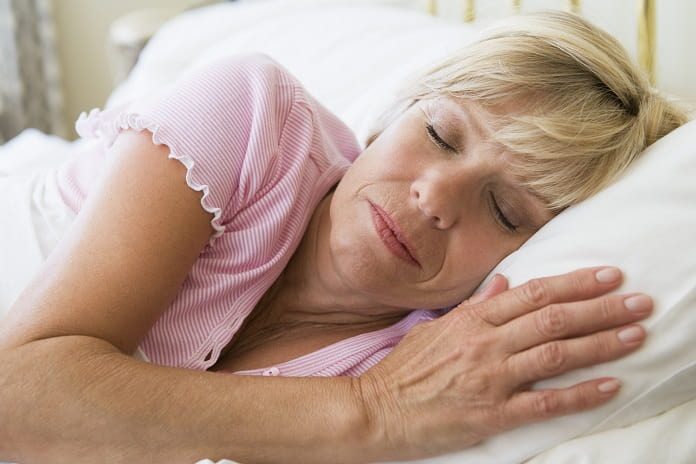A new study examines the link between duration of sleep, biological aging, and cardiovascular disease.
It is recommended for adults between the ages of 18 and 64 to get between seven and nine hours of sleep a night, however, a large portion of the population regularly falls below this range. Many people experience sleep deprivation at some point in their lives, often due to insomnia, a busy schedule, or anxiety.
The symptoms of sleep deprivation include daytime fatigue, forgetfulness, lack of motivation, moodiness, irritability, and increased appetite. Additionally, sleep deprivation can negatively affect health by weakening the immune system, disrupting hormone production, and increasing the risk of respiratory diseases.
Recent research has examined the effect of sleep deprivation on biological aging and cardiovascular disease. Biological age can be determined by the length of telomeres. Telomeres are the ends of chromosomes, and these are known to shorten with age. Risk factors for cardiovascular include high body mass index and waist circumference. A recent study has investigated the relationship between these three factors, the results have been published in Communications Biology.
A total of 482 Singaporean participants between 21 and 69 years of age with an average age of 46 wore Fitbit Charge HR activity trackers to track the average amount of sleep participants got over the study period. Researchers also determined the telomere length of the participants and examined them for the above cardiovascular disease risk factors.
The mean sleep time for all participants was six hours and 28 minutes. Seven percent of participants slept for less than five hours each night, and these participants were twice as likely to have decreased telomere length compared to those who slept for seven hours or more. Furthermore, those who slept for fewer than five hours had, on average, a higher body mass index and waist circumference.
The results of this study suggest that chronic sleep deprivation could potentially lead to adverse health outcomes such as accelerated biological aging and cardiovascular disease. More research is needed to determine if this effect is causal. Moreover, the use of the FitBit Charge HR device to gather data suggests that this technology might be beneficial to future research regarding sleep and energy expenditure.
Written by Avery Bisbee
References:
Davis, K. (2018, January 25). Sleep deprivation: Causes, symptoms, and treatment. Retrieved November 11, 2019, from https://www.medicalnewstoday.com/articles/307334.php#effects.
Teo, J. X., Davila, S., & Yang, C., et al. (2019). Digital phenotyping by consumer wearables identifies sleep-associated markers of cardiovascular disease risk and biological aging. Communications Biology, 2(361). doi: 10.1038s42003-019-0605-1
Wearable tracker study links insufficient sleep to biological aging and cardiovascular disease risk. (2019, November 11). Retrieved November 11, 2019, from https://www.eurekalert.org/pub_releases/2019-11/s-wts111119.php.



